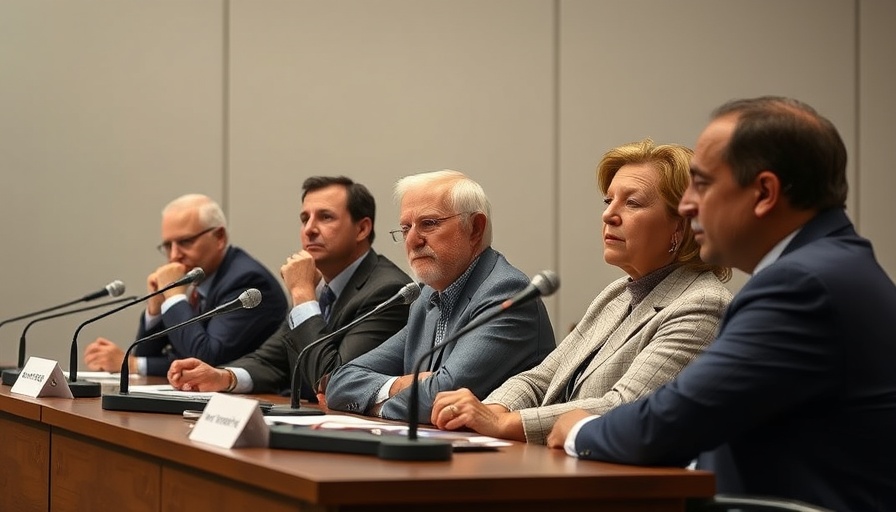
Why Cutting Funding for Homelessness Programs Harms Everyone
The recent talks of budget cuts by the Trump Administration raise a critical issue: the approach to tackling homelessness in the United States. As panelists at the Health Journalism 2025 conference pointed out, these cuts jeopardize vital initiatives like those aimed at utilizing Medicaid funding for housing support. The rollback of these programs not only affects vulnerable populations directly but threatens to ripple out and impact community health and safety in general.
The Link Between Health and Housing: A Common Misconception
Many people mistakenly believe that health care is the sole determinant of health. As Anthony Iton, M.D., J.D., MPH, pointed out, only about 10-15% of health status can be attributed to health care. Environmental factors, including housing stability, play a significant role in overall well-being. When funding for housing support is cut, it doesn’t just affect the homeless; it can lead to increased emergency room visits, mental health woes, and greater societal costs in the long run.
Health Equity and Community Resilience
For health fanatics, the concept of health equity might seem abstract, but it’s foundational to thriving communities. When local health resources are transformed into a weapon against homelessness rather than solutions for healing, the very fabric of community resilience is at stake. Accessible housing, mental health support, and nutritional services are vital in encouraging healthy lifestyles that resonate well beyond individual beneficiaries.
Step-by-Step Approaches to Address Housing First Strategies
It’s critical to apply holistic approaches that recognize the intersection of health and housing. Here are actionable insights that communities can take to advocate for a housing first strategy:
1. **Policy Advocacy**: Engage with local legislators to push for the protection and enhancement of housing support programs. Grassroots movements can amplify voices of those who are often overlooked.
2. **Community Collaboration**: Partner with local health services to create comprehensive programs. Initiatives that integrate wellness strategies like nutrition education, mental health resources, and physical activities can serve as models for recovering communities.
3. **Education and Awareness**: Conduct workshops or online seminars focusing on the correlation between adequate housing and health outcomes. The more educated the public is, the more pressure there will be to reverse damaging policies.
Emotional Impact of Homelessness on Local Communities
The emotional toll of homelessness extends to the community at large. Witnessing the struggles faced by those sleeping on the streets affects the mental health of local residents. This creates an atmosphere of fear, sadness, and frustration, leading to poorer communal health overall. As health-conscious individuals, understanding and tackling these emotional ramifications can help build stronger support systems within our neighborhoods.
Exploring Future Trends: Opportunities for Change
Looking towards the future, it is crucial for advocates and health fanatics to understand emerging trends in housing strategies. The recessionary environment has pushed some states to innovate new models of behavioral health. They explore ways to merge Medicaid funding with housing initiatives actively, suggesting that not all is doom and gloom. The community must stay apprised of these opportunities, as they could serve as pathways to revive homeless reduction strategies.
Call to Action: Get Involved for Better Health
As budget cuts threaten programs designed to reduce homelessness, we must rally together as health fanatics and community members. Start conversations, support local initiatives, and engage with mental health support strategies. Together, we can foster a society where every individual has a chance to thrive, and homelessness is addressed effectively, promoting both mental and physical well-being.
 Add Row
Add Row  Add
Add 




Write A Comment